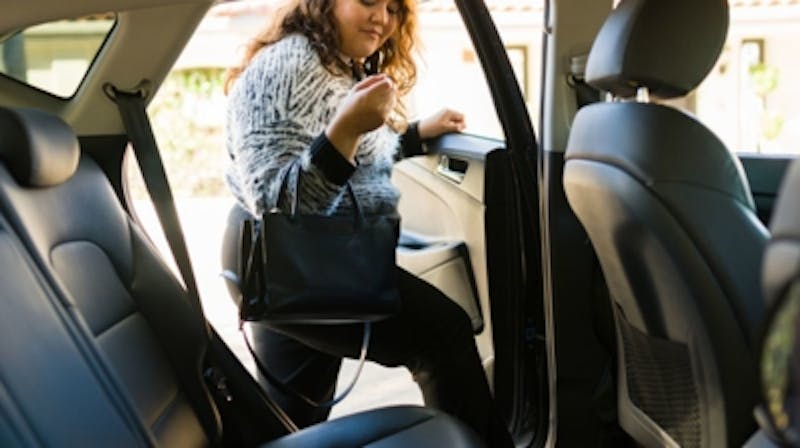
Immediate Actions Post-AccidentSafety First: Ensuring Everyone's Well-being
In the chaotic moments following a rideshare accident, your safety and the well-being of those involved should be your paramount concern. Before diving into the logistics of insurance and legalities, take a deep breath and assess the situation. Check yourself and others for injuries, and if there's even the slightest doubt about someone's health, don't hesitate to dial emergency services. Remember, some injuries are not immediately apparent, and the adrenaline rush can mask pain. Prioritizing safety isn't just a moral obligation; it's a critical step that can impact subsequent legal proceedings, as it establishes a record of the incident's immediate effects.
Document the Scene: Gathering Evidence
Once you've ensured everyone's safety, it's crucial to start gathering evidence at the scene. This can feel overwhelming, but it's about being methodical: take pictures of the vehicles, the surrounding area, and any visible injuries. Jot down the time, location, and weather conditions, as these details can be surprisingly significant later on. If there are witnesses, politely ask for their contact information. This evidence can serve as a cornerstone for any insurance claims or legal actions, helping to construct a clear narrative of the events. Remember, your phone is an invaluable tool here; use it to document everything you can, as your future self will thank you for this diligence.
Legal Considerations and Rights
Understanding Rideshare Insurance Policies
Navigating the complexities of insurance after a rideshare accident can be daunting, but understanding the basics is essential. Rideshare companies typically have substantial insurance policies that cover accidents during active rides, but the coverage can vary depending on the driver's status at the time of the incident. Was the app on? Was the driver awaiting a ride request, en route to a passenger, or during a trip? Each scenario can affect the coverage. Additionally, the driver's personal insurance may come into play. It's important to understand these nuances as they will significantly influence the direction and success of your insurance claims and potential legal action.
Reporting the Incident to the Rideshare Company
After an accident in a rideshare vehicle, reporting the incident to the company is a critical step. Most rideshare services have a protocol for such events, which usually involves submitting details through their app or website. Provide a factual account of what happened and include any evidence you've collected. Timeliness is key; prompt reporting not only ensures that the event is logged officially but also demonstrates your proactive approach to resolving the situation. This can be beneficial down the line, as it shows your commitment to following the correct procedures, which can be advantageous during insurance and legal processes.
Medical Attention and Documentation
Seeking Immediate Medical Care
After a rideshare accident, it's imperative to seek medical attention immediately, even if you feel fine. Adrenaline can mask pain, and some injuries, like whiplash or internal trauma, might not manifest symptoms right away. By getting a medical evaluation, you're not only taking care of your health but also creating a medical record that can be crucial if you pursue a personal injury claim. This step cannot be overstated; it's a foundational element of your well-being and your legal case. Delaying medical care could be misconstrued as a sign that your injuries were not serious, potentially undermining your claim.
Keeping Records of Medical Treatment
As you navigate the aftermath of a rideshare accident, meticulous documentation of your medical treatment is essential. Keep a detailed record of all hospital visits, treatments, prescriptions, and interactions with healthcare professionals. Store every receipt and bill, as these documents will substantiate your financial claims related to the accident. This level of detail may seem excessive, but it's about building a comprehensive picture of your recovery journey. These records will be invaluable when negotiating with insurance companies or if your case goes to court, as they provide tangible proof of the impact the accident has had on your life.
Navigating Insurance Claims
Filing a Claim: Step-by-Step Guide
Filing an insurance claim after a rideshare accident involves several critical steps. Start by notifying your own insurance company about the accident, regardless of fault. Then, gather all the evidence and documentation you've collected, including the official accident report, photos, and medical records. Contact the rideshare company's insurance provider to initiate the claim process. Be prepared to provide a detailed account of the incident and your resulting expenses. It's important to be thorough and organized; a well-documented claim is more likely to be processed efficiently and favorably. Remember, insurance companies are businesses, and their goal is to minimize payouts, so your attention to detail can make all the difference.
Dealing with Insurance Adjusters
When you're dealing with insurance adjusters, it's crucial to understand their role. They assess the claim's validity and determine the settlement amount. While they may seem friendly, remember that their primary allegiance is to their employer, the insurance company. Be cooperative but cautious—provide the necessary information but avoid making any statements that could be interpreted as an admission of fault or liability. It's also wise to refrain from accepting the first settlement offer, as it's often lower than what you may be entitled to. If you're unsure about how to interact with adjusters or evaluate their offers, seeking legal advice can be a strategic move to protect your interests.
Seeking Legal Assistance
When to Consult a Personal Injury Attorney
Deciding when to consult a personal injury attorney after a rideshare accident can be a turning point in your case. If the accident resulted in significant injuries, if there's a dispute over who is at fault, or if you're facing a complex negotiation with insurance companies, it's time to consider professional legal help. A skilled attorney can navigate the intricacies of your case, advocate on your behalf, and ensure that you receive fair compensation for your injuries and losses. Remember, personal injury lawyers are well-versed in the tactics insurance companies use to minimize payouts, and having one on your side can level the playing field.
Understanding Legal Fees and Processes
Understanding the legal fees and processes involved in hiring a personal injury attorney is crucial before you commit to one. Most personal injury lawyers work on a contingency fee basis, meaning they only get paid if you win your case. This fee is usually a percentage of the settlement or court award. It's important to discuss all the terms upfront, including any additional costs that might arise during the legal process. Familiarize yourself with the stages of a personal injury case, from the initial consultation and investigation to the negotiation with insurance companies and, if necessary, litigation. Being informed will help you make the best decisions for your situation.
If You Have Been Injured In a Rideshare Accident, Call 'MAGGIO LAW
Are you navigating the aftermath of a rideshare accident? Remember, you don't have to go through this alone. 'MAGGIO LAW is here to guide you every step of the way. Our experienced injury attorneys understand the complexities of rideshare accidents and are dedicated to fighting for your rights. Contact us today to ensure you receive the compensation you deserve. Let us take the legal burden off your shoulders, so you can focus on your recovery.
Call 'MAGGIO LAW now at (601) 265-6869 or send us a message online.

